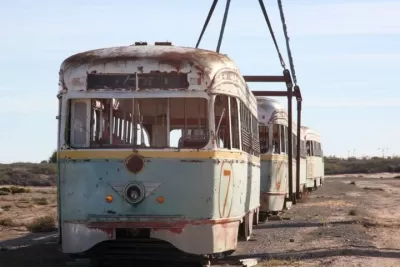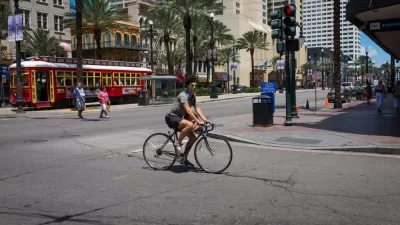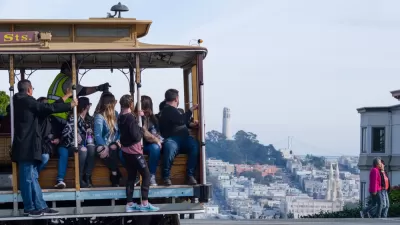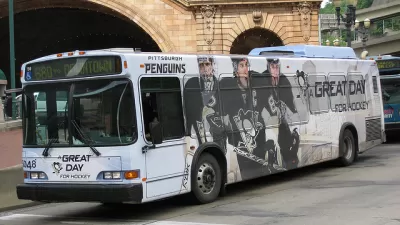City's don't need vintage streetcars; cities need the frequency and convenience of service delivered by the streetcar lines from days past.

Owain James writes in response to the ongoing streetcar renaissance, noting that many recently opened streetcar lines have struggled (as transit on the whole has struggled as well). The argument to made as the lessons of the streetcar renaissance begin to emerge, according to James: "public transportation doesn’t need to be made of streetcars to deliver what streetcars once did."
Moreover:
The level of transit service in U.S. cities in the heyday of streetcars has been unmatched since, but the switch from streetcars to buses is not responsible for this decline. As automobile traffic increased, streetcars had to compete for road space that was filling up quickly. While streetcars ran on tracks, these were almost always installed on roads that were open to all automobiles, so streetcars had to sit in traffic like everyone else.
With lessons from Kansas City, Los Angeles, and Washington, D.C., any city operating a newly opened streetcar, and the cities about to open a new streetcar line, should pay attention.
FULL STORY: We miss streetcars’ frequent and reliable service, not streetcars themselves

Planetizen Federal Action Tracker
A weekly monitor of how Trump’s orders and actions are impacting planners and planning in America.

Map: Where Senate Republicans Want to Sell Your Public Lands
For public land advocates, the Senate Republicans’ proposal to sell millions of acres of public land in the West is “the biggest fight of their careers.”

Restaurant Patios Were a Pandemic Win — Why Were They so Hard to Keep?
Social distancing requirements and changes in travel patterns prompted cities to pilot new uses for street and sidewalk space. Then it got complicated.

San Francisco Suspends Traffic Calming Amidst Record Deaths
Citing “a challenging fiscal landscape,” the city will cease the program on the heels of 42 traffic deaths, including 24 pedestrians.

California Homeless Arrests, Citations Spike After Ruling
An investigation reveals that anti-homeless actions increased up to 500% after Grants Pass v. Johnson — even in cities claiming no policy change.

Albuquerque Route 66 Motels Become Affordable Housing
A $4 million city fund is incentivizing developers to breathe new life into derelict midcentury motels.
Urban Design for Planners 1: Software Tools
This six-course series explores essential urban design concepts using open source software and equips planners with the tools they need to participate fully in the urban design process.
Planning for Universal Design
Learn the tools for implementing Universal Design in planning regulations.
Heyer Gruel & Associates PA
JM Goldson LLC
Custer County Colorado
City of Camden Redevelopment Agency
City of Astoria
Transportation Research & Education Center (TREC) at Portland State University
Camden Redevelopment Agency
City of Claremont
Municipality of Princeton (NJ)





























